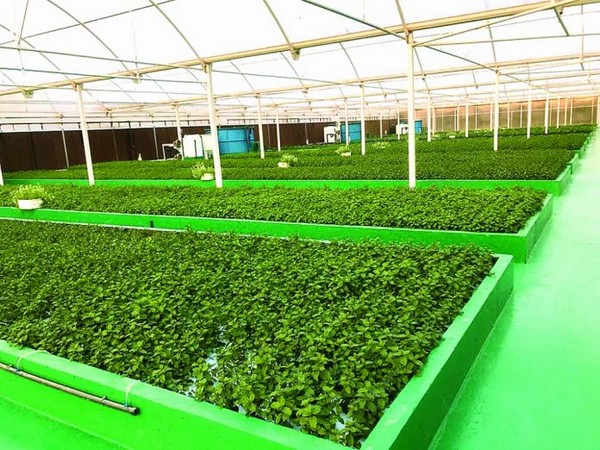
By @Victoria
A recent research paper, Towards sustainable food production systems in Qatar: Assessment of the viability of aquaponics, takes a look into how aquaponics can contribute to a local food system** in arid deserts.
The country of Qatar has minimal arable land, scarce water, rapid population growth, and an extreme climate. Qatar’s setting is an important contrast from many successful aquaponic farms from more temperate climates. Furthermore, Qatar underwent a 2017 Diplomatic Crisis in which the threat of being cut off to a food supply was very real. The crisis sparked the need for innovation and investment into the country’s own food production systems.
The Researchers in Qatar found that aquaponics offered food and water security, and sustainable farming practices that mitigate challenges such as pests, disease, and overfishing. As climate change increases, aquaponics can promote food self-sufficiency (social impact) and create positive environmental and economic impacts. Specifically, food production techniques that address water scarcity in this area are essential.
Researchers determined that aquaponics enterprises based on recirculating aquaculture systems (RAS) are better suited for food production in arid areas (Shaalan et al., 2018). Also, microbial-based systems like aquaponics are able to degrade waste on a significant level while improving water quality (Li et al., 2019).
While traditional soil-based agriculture can be sensitive to the climate found in arid regions, an emphasis on soilless food production systems such as aquaponics can help minimize chemicals or pesticides compared to soil-based, and with these actions has the potential to improve the state of reservoirs, rivers, lakes, irrigation systems, and wetlands (Abusin, S.A.A. & Mandikiana, B.W., 2020).
Aquaponics has faced challenges of outperforming hydroponic and aquaculture systems, but this has primarily been due to the technologies offered where one loop systems are less productive. Recent studies determined that multi-loop decoupled systems improve nutrient recovery, bioavailability, and water use (Goddek and Keesman, 2018), while also making disease management easier, and converting otherwise unusable sludge into a valuable product. (Abusin, S.A.A. & Mandikiana, B.W., 2020).
Overall, aquaponics can play a major role in a local food system - even in a desert like Qatar - by conserving water, lowering food insecurity, promoting economic growth, and reducing environmental impacts.
Read the Paper:
Abusin, S. A. A., & Mandikiana, B. W. (2020). Towards sustainable food production systems in Qatar: Assessment of the viability of aquaponics*. Global Food Security, 25, 100349.* https://doi.org/10.1016/j.gfs.2020.100349
**What is a Local Food System?
A local food system has no consensus in terms of geographic distance between production and consumption, but the USDA recognizes local based on marketing arrangements and a general standard is seeing the importance and presence of social, cultural and ecological impacts that are tied to diverse local areas around the world (Martinez et al., 2010, Feagan, 2007), Local food systems can be significant contributors to community well-being, not just in economic terms but also through the environmental and social benefits they produce. These benefits are well-documented, but can be difficult to measure, especially to create an aggregate picture of the total impact of local food systems. This also makes it difficult to compare local food systems to the larger food system, which is most frequently measured in purely economic terms. In this series, I look at several different existing studies of aquaponics and determine the impacts to economic, social and environmental situation as a local food system.
References:
Goddek, S. & Keesman, K.J. (2018). The necessity of desalination technology for designing and sizing multi-loop aquaponics systems. Desalination, 428, 76-85. https://doi.org/10.1016/j.desal.2017.11.024
Li, C., et al. (2019). Performance of a pilot-scale aquaponics system using hydroponics and immobilized biofilm treatment for water quality control. Journal of Cleaner Production, 208, 274-284. https://doi.org/10.1016/j.jclepro.2018.10.170
Shaalan, M., El-Mahdy, M., Saleh, M., El-Matbouli, M. (2018). Aquaculture in Egypt: insights on the current trends and future perspectives for sustainable development. Reviews in Fisheries Science & Aquaculture, 26 (1), 99–110. https://doi.org/10.1080/23308249.2017.